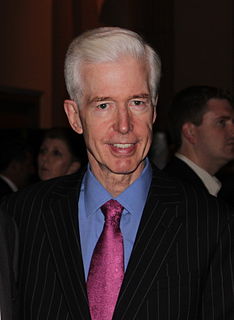A Quote by John Kenneth Galbraith
Were it part of our everyday education and comment that the corporation is an instrument for the exercise of power, that it belongs to the process by which we are governed, there would then be debate on how that power is used and how it might be made subordinate to the public will and need. This debate is avoided by propagating the myth that the power does not exist.
Related Quotes
Our minds tell us, and history confirms, that the great threat to freedom is the concentration of power. Government is necessary to preserve our freedom, it is an instrument through which we can exercise our freedom; yet by concentrating power in political hands, it is also a threat to freedom. Even though the men who wield this power initially be of good will and even though they be not corrupted by the power they exercise, the power will both attract and form men of a different stamp.
Let no one ever shy away from the claim that Jews have power, that Jews have influence. We have learned the terrible lesson of history; that unless we have influence and power, disproportionate to our small numbers - immoral results will occur. We need power. And we must continue to use our power. Power which we earned, power which no one gave us on a silver platter, power which we worked hard for - use that power in the interests of justice.
Politics is about power. It is about the power of the state. It is about the power of the state as applied to individuals, the society in which they live and the economy in which they work. Most critically, our responsibility in this parliament is how that power is used: whether it is used for the benefit of the few or the many.
The President can exercise no power which cannot be fairly and reasonably traced to some specific grant of power in the Federal Constitution or in an act of Congress passed in pursuance thereof. There is no undefined residuum of power which he can exercise because it seems to him to be in the public interest.
We should not be content to say that power has a need for such-and-such a discovery, such-and-such a form of knowledge, but we should add that the exercise of power itself creates and causes to emerge new objects of knowledge and accumulates new bodies of information. ... The exercise of power perpetually creates knowledge and, conversely, knowledge constantly induces effects of power. ... It is not possible for power to be exercised without knowledge, it is impossible for knowledge not to engender power.
I have never been able to conceive how any rational being could propose happiness to himself from the exercise of power over others... An honest man can feel no pleasure in the exercise of power over his fellow citizens.... Power is not alluring to pure minds and is not with them the primary principle of contest.




































